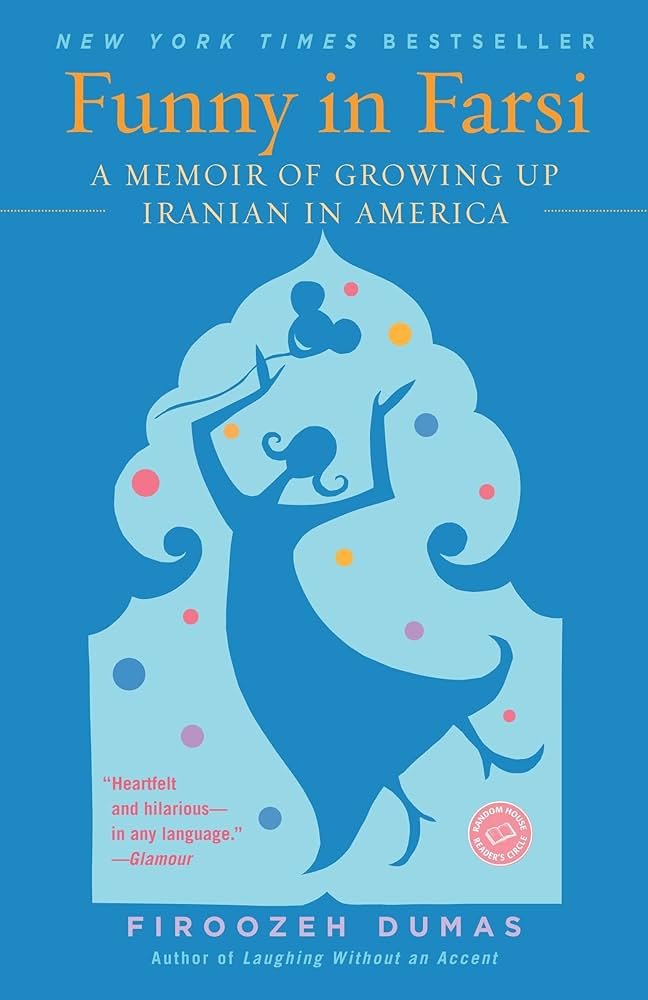What’s it about?
Funny in Farsi is a witty, heartfelt memoir by Firoozeh Dumas about growing up Iranian in America. Through a series of short, humorous essays, she shares the joys and challenges of adapting to a new culture, the love and quirks of her family, and the unique perspective of being caught between two worlds.
Detailed Summary
The story begins when seven-year-old Firoozeh moves from Iran to Southern California in the 1970s, accompanying her engineer father, Kazem, who is obsessed with American culture, especially Disneyland and inventors. The memoir unfolds through a series of vivid, funny, and sometimes poignant anecdotes about her family’s adventures in their adopted country.
Firoozeh recounts the initial confusion of American life—navigating supermarkets, learning English, and dealing with the mispronunciations of her name. She describes hilarious misunderstandings, like her mother’s failed attempts at learning English from television and her own struggles to fit in at school.
The Dumas family is close-knit, loving, and full of eccentric characters. Firoozeh’s father is endlessly optimistic, proud of his Iranian heritage but eager to embrace all things American. Her mother is resourceful and practical, despite the language barrier. Relatives often visit from Iran, bringing their own comic chaos and culture clashes to the family’s American experience.
As Firoozeh grows older, she faces the challenges of adolescence, identity, and being an outsider. The Iranian Revolution and the subsequent hostage crisis in the late 1970s bring new difficulties, as anti-Iranian sentiment grows and her family faces discrimination. Yet humor is always at the center—her father’s unfailing positivity and Firoozeh’s own wit help the family weather hard times.
The book explores both lighthearted and serious themes: adapting to a new culture, the struggle to maintain one’s heritage, and the power of kindness and laughter. Firoozeh’s stories include the perils of summer camp, the confusion of American idioms, her quest for acceptance, and her marriage to a Frenchman named François, which brings another layer of cultural comedy.
Through it all, Firoozeh celebrates her family’s resilience, the richness of Iranian culture, and the warmth and absurdity of everyday life. The memoir ends on a note of gratitude and hope—showing that humor, love, and a little stubbornness can help bridge even the widest of cultural gaps.
